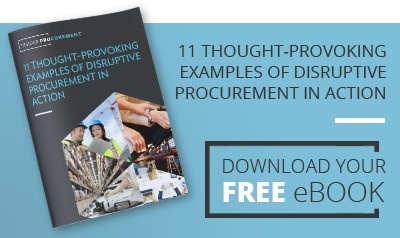As procurement consultants, we are always looking for great examples of disruptive procurement in action.
The $3.7bn Tesco Booker takeover was a great example of disruption in the food distribution marketplace.
Tesco's 3200 stores were supplemented by the 117,000 retail outlets supplied by Booker (including Booker's 5,500 owned retail premises under the brand names Budgens, Premier, Londis and Family Shopper). The deal created a retail and wholesale giant of a company.
It was a hard-fought battle to make the merger happen; as reported in the Guardian, a group representing 60% of the UK wholesale market, jointly wrote to CMA prior to the merger stating the deal would give Tesco “incontestable power over the procurement of all grocery categories in the UK”.
Of course, that is exactly the position Tesco want to attain.
But, the truth is that even the mighty Tesco with all of that "incontestable power over procurement" can't simply ask suppliers to cut their costs.
Margins are so squeezed already that Tesco have sought alternative ways to get the margins they require:
1. Making it easier to do business
CIPS reported that Tesco is helping smaller businesses by offering attractive payment terms and a dedicated team to help cut through any difficulties smaller businesses might face in dealing with the giant retailer.
2. Longer term contracts for strategic suppliers
Tesco announced that they would offer longer term contracts to potato suppliers as a way of supporting British Agriculture.
3. Training for suppliers
As a company experienced in growth, Tesco has offered business training for their smaller suppliers. It's a win-win situation. One of the tricks to growing any business is cost-containment and if their suppliers are shown how to grow profitably, then Tesco wins in improved margins too.
4. Innovation with suppliers
Tesco works with suppliers to create new product lines to differentiate themselves from the competition. In January 2018, for example, they announced their new vegan range of ready-to-go food, based on the growing trend for people to cut back on animal-based products.
Taking the stage at Packing Innovations 2018, Tesco will be revealing their work with suppliers on recycled packaging materials.
5 Disruptive technology
Working with business partners, Tesco is constantly coming up with new ways to expand the business beyond bricks and mortar retail stores. Last year they trialled a robot delivery system - a coolbox on wheels that can deliver goods within a three mile radius of a store. More work is being done on the integration of Tesco's on line shopping with Alexa and Google Home to make voice ordering a reality.
The food retail space is crowded, and it is only by being innovative and/or disruptive that Tesco can steal a march on the competition and retain its position in the UK retail sector.
So what can we learn from this?
Even the biggest players in the market can no longer continue to drive costs down without some real strategic thinking and good supplier collaboration.
Procurement teams will succeed in driving down costs not by demanding price cuts from their suppliers, but by:
- understanding what drives their own business and aligning procurement decisions with shareholder value
- working with colleagues to differentiate their business from its competition through product and service innovations
- collaborating with suppliers to find alternative ways to fulfil requirements
Read more on this subject:
8 essentials for best practice procurement
The 7 habits of highly successful procurement teams
Disruptive procurement explained

